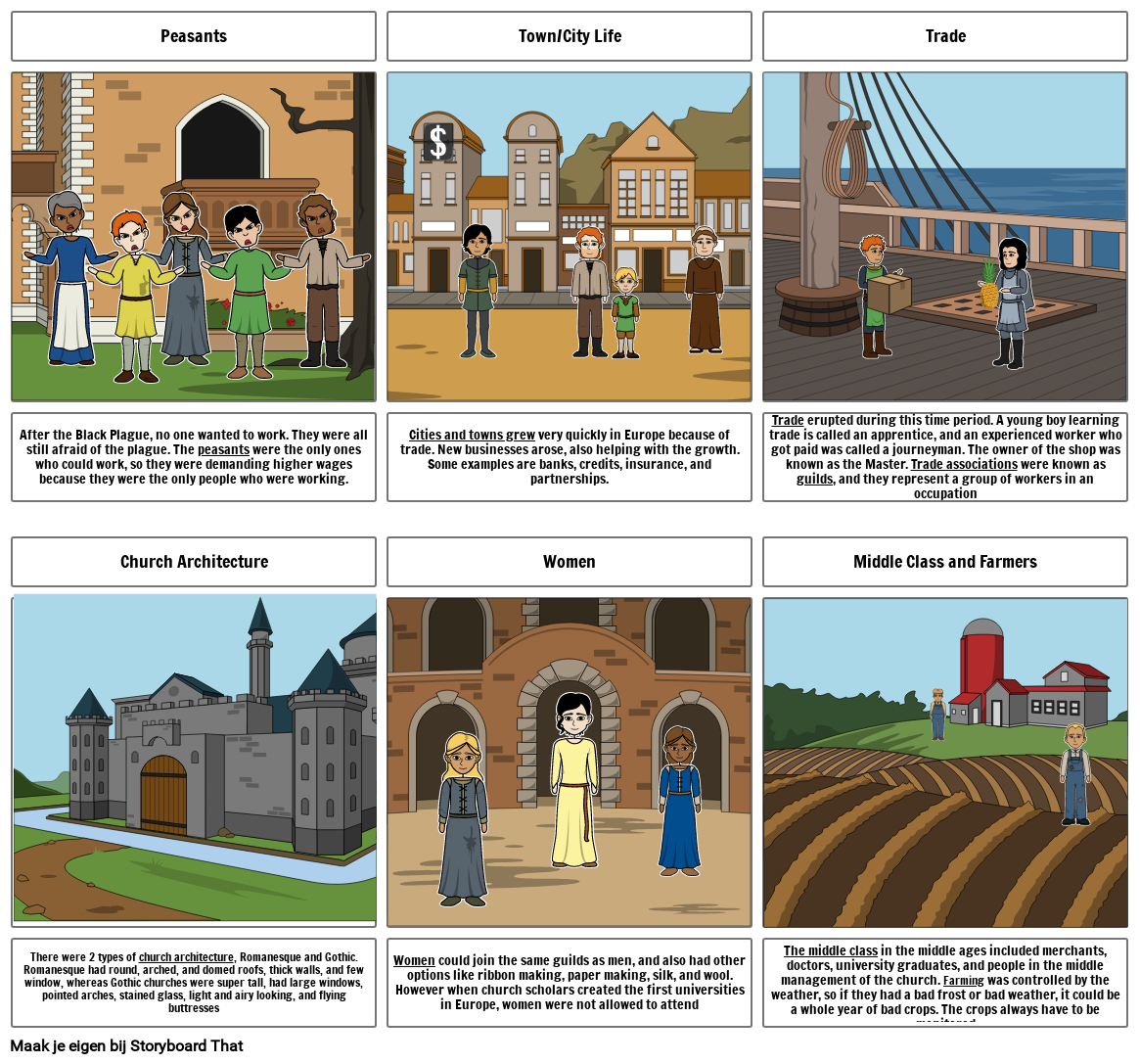Unknown Story

Kuvakäsikirjoitus Teksti
- Peasants
- Town/City Life
- Trade
- After the Black Plague, no one wanted to work. They were all still afraid of the plague. The peasants were the only ones who could work, so they were demanding higher wages because they were the only people who were working.
- Church Architecture
- Cities and towns grew very quickly in Europe because of trade. New businesses arose, also helping with the growth. Some examples are banks, credits, insurance, and partnerships.
- Women
- Trade erupted during this time period. A young boy learning trade is called an apprentice, and an experienced worker who got paid was called a journeyman. The owner of the shop was known as the Master. Trade associations were known as guilds, and they represent a group of workers in an occupation
- Middle Class and Farmers
- There were 2 types of church architecture, Romanesque and Gothic. Romanesque had round, arched, and domed roofs, thick walls, and few window, whereas Gothic churches were super tall, had large windows, pointed arches, stained glass, light and airy looking, and flying buttresses
- Women could join the same guilds as men, and also had other options like ribbon making, paper making, silk, and wool. However when church scholars created the first universities in Europe, women were not allowed to attend
- The middle class in the middle ages included merchants, doctors, university graduates, and people in the middle management of the church. Farming was controlled by the weather, so if they had a bad frost or bad weather, it could be a whole year of bad crops. The crops always have to be monitored
Yli 30 miljoonaa kuvakäsikirjoitusta luotu

